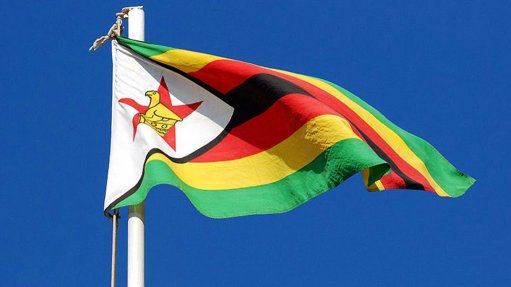No firm decisions on nuclear, Gigaba insists
Finance Minister Malusi Gigaba has reiterated South Africa’s stance that the proposed nuclear programme be implemented only at a “pace and scale” that is affordable and denied that any “firm decisions” had been made on the issue, besides Cabinet’s endorsement of a plan to add 9 600 MW of new nuclear capacity to the electricity mix in line with the current Integrated Resource Plan (IRP).
Speaking in Pretoria after S&P Global Ratings’ downgrade of South Africa’s sovereign rating to junk status and following a handover meeting with former Finance Minister Pravin Gordhan, Gigaba said various processes were still required ahead of any final procurement decision, including an update of the IRP.
Earlier, the National Treasury had been forced to refute social media allegations suggesting that the Minister had signed off on the nuclear deal only hours after being sworn into the position, following President Jacob Zuma’s highly controversial reshuffling of his executive in the early hours of March 31.
Gordhan, whose axing precipitated the ratings action taken by S&P, learned, but has never been told, that he had been recalled from a post-Budget roadshow to the UK on March 27 partly on rumours that he and his team had reportedly told investors that the nuclear programme would not proceed. He described the rumour as a “lie” and also slammed as “absolute nonsense” a so-called intelligence report suggesting that he planned to use the roadshow to plot against government.
Gigaba, who admitted to knowing about S&P’s downgrade four days prior to the April 3 announcement, went to great lengths to offer assurances that he had no intention of veering from the fiscal-consolidation framework outlined by Gordhan in February, or from existing policy, including government’s stance on new nuclear power plant builds.
“We will implement the [nuclear] programme at the scale and pace the country can afford. That is exactly what my predecessor also said.”
The programme, he added, arose directly from the IRP, which was adopted by Cabinet as part of plans to diversify the energy mix and integrate “environment-friendly” generation technologies. The choice of nuclear was also made to ensure new baseload generation capacity was in place when some of the older coal-fired power stations were decommissioned.
“At the present moment, we are at that stage where no firm decision has been taken except to say that we will have 9 600 MW generation capacity. “Where those nuclear stations will be built, whether they will all be built at the same time, whether you will break this up into different chunks, all of that, the pace and scale will be determined by what the country can afford.”
He also stressed that the IRP still had to be revised, while the Inter-Ministerial Committee on Energy would undertake various proccesses before any final procurement decisions were taken.
State-owned power utility Eskom is current running a request for information (RfI) process, responses to which are due on April 28. Eskom has confirmed receipt of 27 ‘acknowledgement forms’ formally notifying it of an intention to respond to the RfI, with notifications received from major nuclear vendors from China (SNPTC), France (EDF), Russia (Rusatom Overseas) and South Korea (Kepco).
The utility has also indicated that a formal request for proposals (RfP) could follow by the middle of 2017, with media reports suggesting that the tender could be issued in June. Eskom chief nuclear officer Dave Nicholls told the Nuclear Africa 2017 conference recently that, should the RfP be released by the middle of the year, contracts could be signed in late 2018 or early 2019. However, the programme will face stiff opposition, with even parts of the African National Congress now questioning its affordability in the wake of the downgrades – Fitch Ratings also downgraded South Africa to junk status on April 7. Equally, there are suspicions that Gigaba’s appointment is an attempt at ensuring that the controversial programme proceeds, regardless of its costs and notwithstanding the fact that even a nuclear-sympathetic draft Integrated Resource Plan Base Case shows that the first reactor would only be required by 2037.Comments
Press Office
Announcements
What's On
Subscribe to improve your user experience...
Option 1 (equivalent of R125 a month):
Receive a weekly copy of Creamer Media's Engineering News & Mining Weekly magazine
(print copy for those in South Africa and e-magazine for those outside of South Africa)
Receive daily email newsletters
Access to full search results
Access archive of magazine back copies
Access to Projects in Progress
Access to ONE Research Report of your choice in PDF format
Option 2 (equivalent of R375 a month):
All benefits from Option 1
PLUS
Access to Creamer Media's Research Channel Africa for ALL Research Reports, in PDF format, on various industrial and mining sectors
including Electricity; Water; Energy Transition; Hydrogen; Roads, Rail and Ports; Coal; Gold; Platinum; Battery Metals; etc.
Already a subscriber?
Forgotten your password?
Receive weekly copy of Creamer Media's Engineering News & Mining Weekly magazine (print copy for those in South Africa and e-magazine for those outside of South Africa)
➕
Recieve daily email newsletters
➕
Access to full search results
➕
Access archive of magazine back copies
➕
Access to Projects in Progress
➕
Access to ONE Research Report of your choice in PDF format
RESEARCH CHANNEL AFRICA
R4500 (equivalent of R375 a month)
SUBSCRIBEAll benefits from Option 1
➕
Access to Creamer Media's Research Channel Africa for ALL Research Reports on various industrial and mining sectors, in PDF format, including on:
Electricity
➕
Water
➕
Energy Transition
➕
Hydrogen
➕
Roads, Rail and Ports
➕
Coal
➕
Gold
➕
Platinum
➕
Battery Metals
➕
etc.
Receive all benefits from Option 1 or Option 2 delivered to numerous people at your company
➕
Multiple User names and Passwords for simultaneous log-ins
➕
Intranet integration access to all in your organisation

















